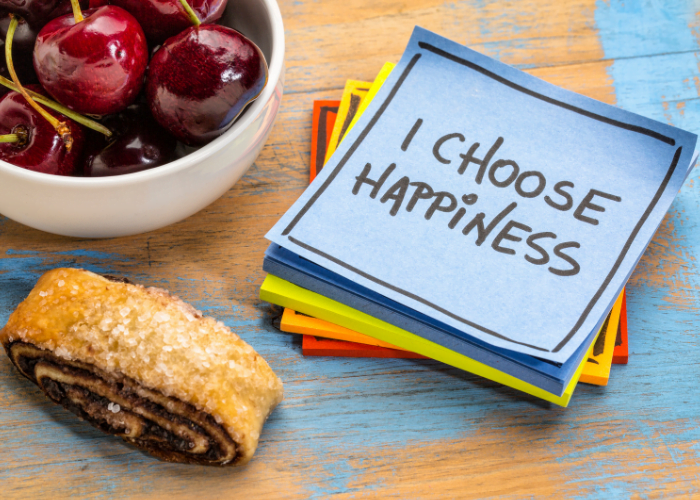
Are you and your partner always in sync and never fighting? If so, that’s great! But if not, don’t worry—disagreements can be a good sign for your relationship. It’s not something to fear—it’s something to embrace. You can learn about your partner, better understand their perspective, and become closer through disagreements. In this article, we’ll discuss how disagreements can strengthen your bond and how to handle them positively and positively. So if you’ve been worried about relationship debates, fear no more! Read on to learn why disagreements in a relationship are a good thing.
Why is Disagreeing Good?
It’s hard to imagine, but disagreements between two people can be beneficial. Disagreements and arguments prove that you two care about each other and are invested in your relationship. They can also create new understandings and resolutions that neither of you ever thought of before. When two people disagree, it allows them to exercise their own thoughts and beliefs and learn a little more about each other. This can help strengthen a couple’s bond as each partner learns and grows with the other. It’s important to remember that disagreements should never be destructive or hurtful and that the main objective should always be to find a common understanding.
It Allows You to Get Closer
Although disagreements can be a source of disagreement and stress, they can also be a great way of getting closer to your partner. When you disagree, you each get to learn more about what makes the other tick and their perspective on any given topic. This can help you to understand your partner more deeply and with more empathy, creating a solid foundation for your relationship. Furthermore, research even suggests that couples that disagree more often can be better at resolving their disagreements, which leads to greater relationship satisfaction.
It Can Help You Grow
Disagreements don’t always have to be seen as a bad thing. Far from being a sign of a failed relationship, disagreements can often help you and your partner grow closer and develop a stronger bond. Disagreements can help you and your partner learn more about each other and can be a great way to improve communication skills. Working together to find a compromise can help you both establish a stronger, more meaningful relationship and also help you to grow as an individual.
It Can Help You Find Solutions
Disagreements can be difficult and uncomfortable, but they can also be an excellent opportunity to work together as a couple. By discussing and debating your differences of opinion, you can learn more about each other and find solutions that work for both of you. A healthy relationship can handle disagreement, and that resilience helps strengthen your bond. So next time you and your partner disagree, approach the situation with empathy, kindness, and openness to reach an agreement that works for both of you.
How to Handle Disputes
When disagreements arise in a relationship, it can be easy to get upset and react unhelpfully. The key is handling disputes respectfully and productively, which can help strengthen your bond. Here are some tips that can help you and your partner work through disagreements:
1. Listen to each other and be empathetic. Each person must hear what the other is saying and can understand their point of view.
2. Use ‘I’ statements rather than “you” statements. This can help avoid making assumptions or placing blame on the other person.
3. Stay focused on the issue, and don’t let the discussion spiral into other topics.
4. Find common ground and agree to disagree on some points.
5. Take breaks when needed and recognize when it’s time to take a step back and cool off before continuing the discussion.
Remember, disagreements can be healthy for relationships and provide an opportunity for growth. With a bit of work, it is possible to navigate through the disagreements in a way that can benefit both of you.
Agree to Disagree
Don’t be afraid to disagree with your partner. It’s OK to express different opinions, which can bring you closer together. When you can both agree to disagree, it’s a sign of trust and respect. That’s because when you’re comfortable expressing your opinions, it shows that you are willing to accept those of others. And vice versa. Remember, different perspectives are often suitable for healthy discussions. Embrace them instead of running away from them, and you’ll find that your relationship can become more robust with each exchange.
Change Your Perspective
Sometimes a disagreement can feel like a disruption to the relationship, but it doesn’t have to be that way. If you can look at the disagreement from a different perspective, it can potentially strengthen your connection with your partner. Instead of trying to win the argument, try to find common ground with which both of you can be happy. This can help create a mutual understanding and respect for your different viewpoints. Additionally, learning how to communicate when you disagree effectively can help you come to a resolution more quickly and with more positive results. Take the time to discuss things and consider each other’s feelings when navigating an argument. This can help create a stronger bond and more trust in your relationship.
Focus on the Positive
A disagreement between partners doesn’t have to mean the end of a relationship. Learning to work through conflicts can have the opposite effect—it can strengthen your connection. By seeing the disagreement as an opportunity to come together and find a standard solution, you can deepen the bond between you and your partner. So rather than avoiding disagreements, lean in and try to approach them as a constructive exercise. Remember, there’s no shame in asking for help or professional guidance if you feel stuck. No matter what disagreements arise, staying committed to tackling them as a team can make your relationship even more robust.
Conclusion
It’s normal to disagree, and it can be beneficial for you and your partner’s relationship! Disagreeing can bring you closer together, as you can talk openly and honestly with one another. It can also help you grow as you expand your knowledge and understanding. You can also learn how to find solutions to conflicts. When disagreements arise, it is essential to handle them healthily and remember that it is ok to disagree. Do your best to stay open-minded and to change your perspective if needed. Also, try to focus on the positive aspects of the situation, which can help build trust in your relationship. Conclusion: Disagreements don’t have to be bad for your relationship as long as you handle them positively and constructively. Taking the time to talk it out can help strengthen your bond and bring you closer together.
Read More:
Making Peace With Change: Accepting Endings And Transitions
Bedtime Battles: Why Women Require More Sleep
Overcoming Negative Thinking: Strategies for Changing Your Inner Dialogue



